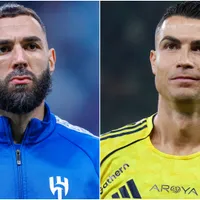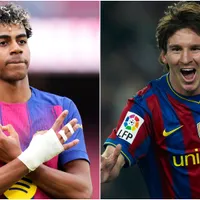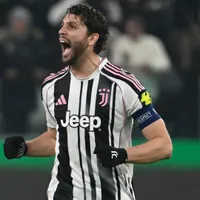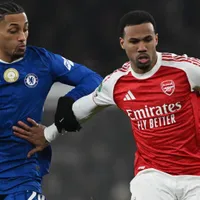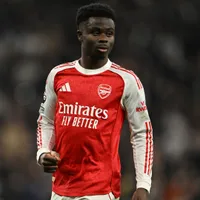We’ve written a UEFA European Championship beginner’s guide to explain how one of the world’s most exciting soccer competitions works and where you can watch the matches on US television and streaming.
The event brings together the finest footballing nations from across Europe to compete for the right to be crowned as kings of the continent. Like the World Cup, the title is defended every four years, adding greater significance and anticipation to the fixtures played out.
Founded in 1960, the European Championship has seen plenty of changes and continues to evolve as modern soccer morphs. The 2024 edition of the tournament will be hosted by Germany. This is the first time that reunified Germany will be a solo host for the tournament, and the first time a former East German city (Leipzig) will host games.
The Euro 2024 Final will take place on July 14, 2024 at the Olympiastadion in Berlin. The logo for the tournament features 24-colored slices, representing the participating nations, in the shape of the stadium’s distinctive roof.
Fans in the United States can catch all of the action of the 2024 event on FOX, Fubo, and ViX. The tournament is set to start on June 14th, 2024.
UEFA European Championship beginner’s guide
Format
The qualification process for 2024 for the competition has all UEFA member countries – except Russia who has been banned due to the nation’s invasion of Ukraine – battling it out for their spot in the upcoming tournament. Germany automatically qualifies as the host nation.
The 23 remaining slots are filled by the qualifying tournament. 20 will be the group winners and runners-up of the 10 qualifying groups. The remaining three spots will be awarded via a playoff. The twelve teams in this playoff will be selected from the best teams in the 2022-23 UEFA Nations League that did not otherwise qualify to the tournament.
Six groups of four teams each will begin the group stage of the tournament. The top two teams from each group will directly advance into the knockout phase, while the top four performing third place teams will also advance into the round of 16. Once the knockout round begins, it will be a winner-take-all tournament until a champion is ultimately crowned on July 14th.
Cologne, Dortmund, Frankfurt, Düsseldorf, Munich, Leipzig, Gelsenkirchen, and Berlin will host Round of 16 games. Stuttgart, Hamburg, Berlin and Düsseldorf will handle the quarterfinals. Munich and Dortmund have the semifinals, and the final is in Berlin.
History
Naturally, having been running for so many years, the European Championship has forged a tremendous legacy and has been a grand stage for plenty of immortal figures in the sport’s history.
In the 16 times the tournament has been held, 10 different winners have emerged, offering an insight into just how fierce the competition is among the continent’s best national teams. Germany and Spain are the most prolific winners, sampling glory on three separate occasions each. Italy and France have each won twice, the only other nations to have won the tournament more than once.
The Euros have a reputation for producing shocks as well. In the past, some unlikely champions have surfaced, with the most recent example being Portugal in 2016. Grinding their way to the final and upsetting France in front of their own supporters, Portugal secured the title with an unlikely hero (Eder) scoring the winner in extra-time.
In 1992, Denmark only took up a spot in the final eight-team lineup after Yugoslavia were disqualified from competing and went on to secure a surprise triumph. Famously, it was claimed the Danes, who believed they were off for the summer, came off the beach to win their first and only European title.
But the most surprising champions in Euros history, perhaps even in the history of international football, came when Greece won the 2004 edition. Few believed Otto Rehhagel’s men would win a game at the Portugal showpiece, although they upset the hosts 2-1 in the first game of the tournament and eventually took their place in the knockout stages. From that point on they didn’t concede a goal and beat Portugal for a second time to complete a gargantuan upset.
In terms of individuals, France’s Michel Platini secured his status as an all-time great in this competition and is the overall top scorer in European Championship history; his nine goals in the 1984 tournament powered his country to glory on home soil.
READ MORE: Name variations of soccer leagues, cups and tournaments
Browse through these beginners guides to the many of the popular soccer leagues:
Soccer Beginner’s guides
• Beginner’s guide to soccer rules
• Beginner’s guide to Argentine Primera División
• Beginner’s guide to Bundesliga
• Beginner’s guide to Championship
• Beginner’s guide to Champions League
• Beginner’s guide to English Premier League
• Beginner’s guide to Korea’s K League
• Beginner’s guide to Euros
• Beginner’s guide to World Cup
If you have any questions about the European Championship beginner’s guide, please let us know in the comments section below.



